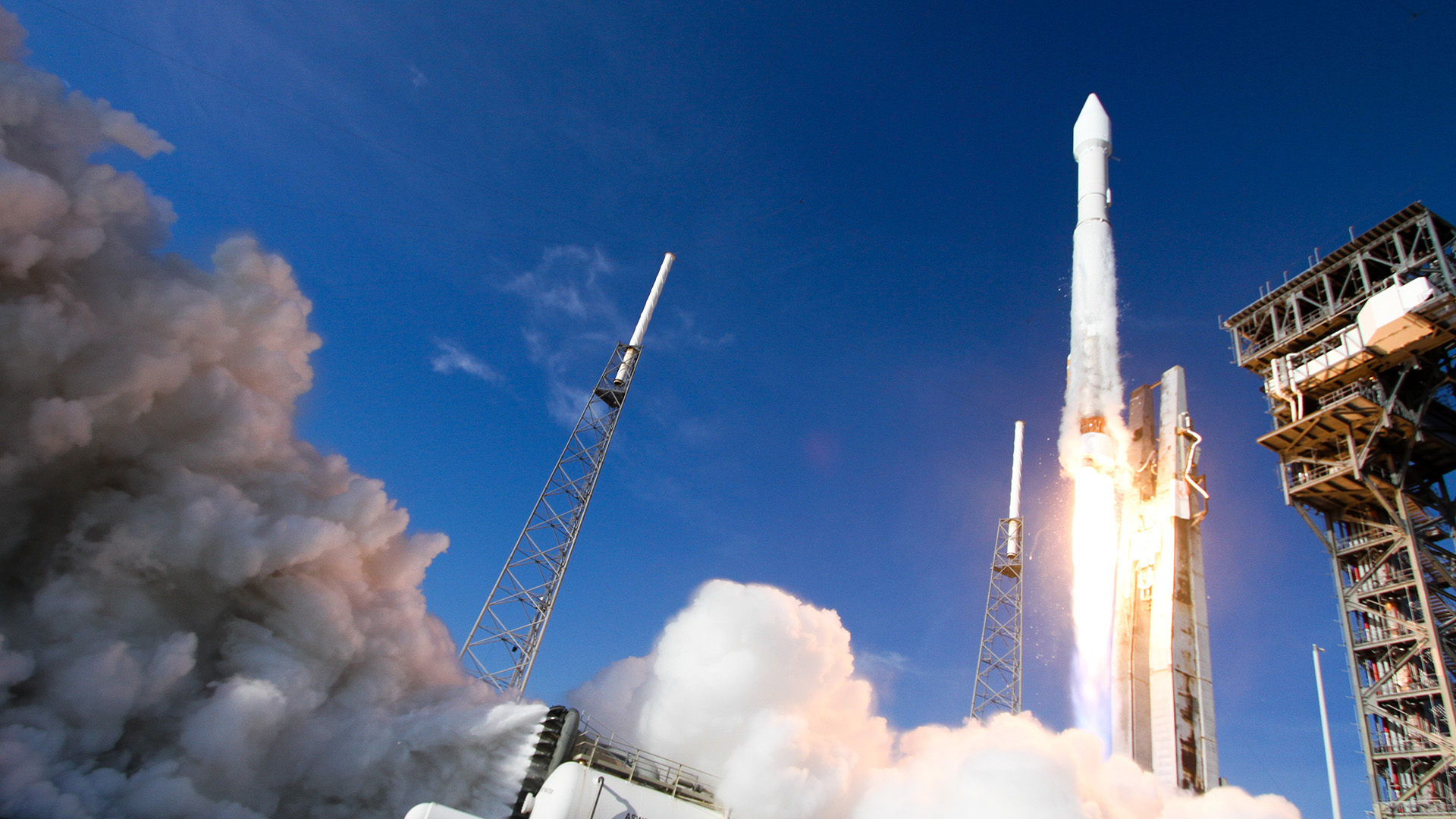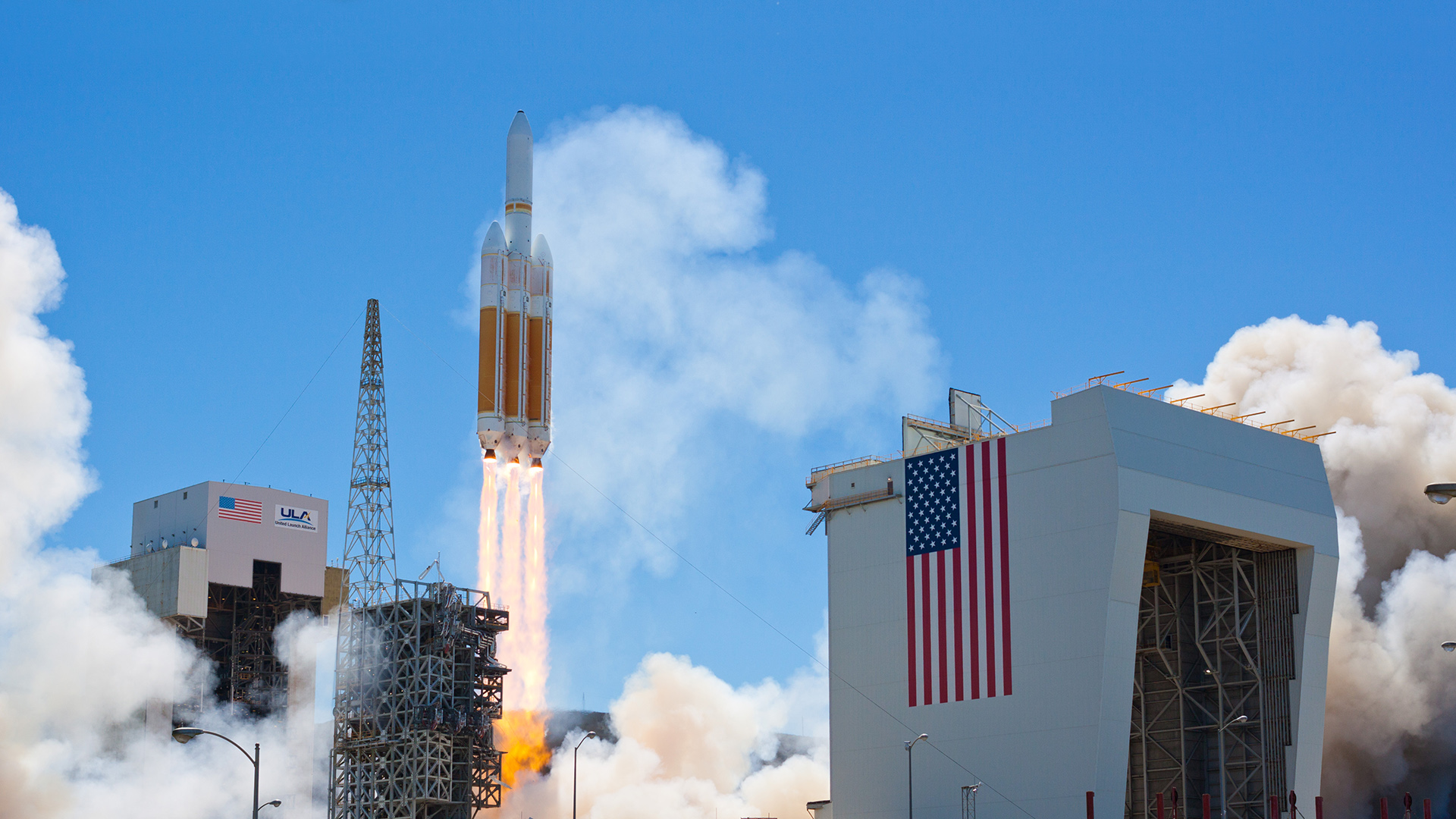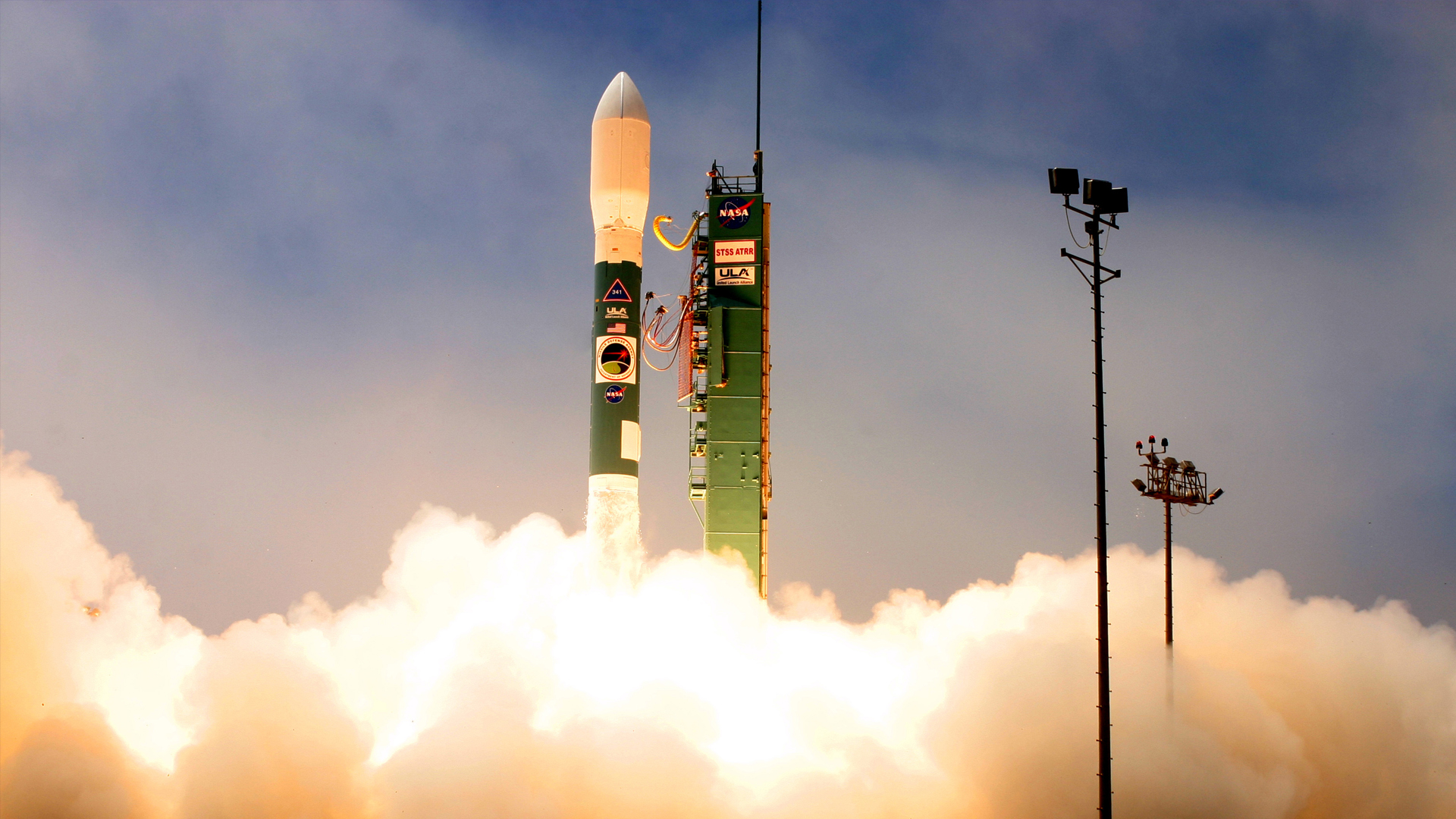Missions
Next LaunchUnited Launch Alliance Launches 350th Delta in Program's 50-Year History
VANDENBERG AIR FORCE BASE, Calif., Nov. 5, 2010 - For the 350th time in its illustrious 50-year program history, a Delta rocket launched from U.S. soil, adding another chapter to one of the most successful rocket launch programs in American history.
The 350th mission was a United Launch Alliance Delta II rocket launching the fourth Italian-built Constellation of Small Satellites for Mediterranean Basin Observation (COSMO-SkyMed 4) satellite from Space Launch Complex-2 at 7:20 p.m. PDT today. ULA successfully launched the first three COSMO-SkyMed satellites on Delta II vehicles June 7, 2007, Dec. 8, 2007, and Oct. 24, 2008. The mission was procured by Boeing Launch Services and was launched for the Italian Space Agency, the Italian Ministry of Defence and Thales Alenia Space. The first Delta launch took place on May 13, 1960. The Delta II used today has demonstrated a 98.6 percent success rate and, while ULA launches one mission at a time, COSMO-SkyMed 4 marks the 93rd successful launch of a Delta II dating back to 1997.
"Today's successful launch of the Cosmo-SkyMed-4 mission was the 350th Delta launch, which has provided an exceptional highlight to the year-long 50th anniversary celebration of the Delta program," said Jim Sponnick, ULA vice president, Mission Operations. "The Delta system has achieved an extremely impressive track record of mission success over the last five decades. This achievement was made possible by the outstanding skills and hard work of our engineers and technicians along with the tremendous support we receive from our government, industry, and supplier mission partners. The ULA team is very pleased to have successfully launched the fourth COSMO-SkyMed satellite for Boeing, the Italian Space Agency, Ministry of Defence and Thales Alenia Space."
The ULA Delta II 7420-10 configuration vehicle featured a ULA first stage booster powered by a Pratt & Whitney Rocketdyne RS-27A main engine and four Alliant Techsystems (ATK) strap-on solid rocket boosters. An Aerojet AJ10-118K engine powered the second stage. The payload was encased by a 10-foot-diameter composite payload fairing.
COSMO-SkyMed 4 is the final satellite in the initial constellation for this system. Each of the four satellites is equipped with a high-resolution Synthetic Aperture Radar operating in X-band. The overall objective of the program is global Earth observation and relevant data responding to the needs of the military and scientific community, as well as to the public demand for environmental control.
Formed in 2006, ULA combines the successful Atlas and Delta expendable launch vehicle programs offering cost-effective and reliable launch services to U.S. government customers, including the Department of Defense, NASA, the National Reconnaissance Office and other commercial organizations. ULA's next launch is the Delta IV Heavy mission for the NRO, scheduled to launch Nov. 16, from Space Launch Complex-37 at Cape Canaveral Air Force Station, Fla.
ULA program management, engineering, test and mission support functions are headquartered in Denver, Colo. Manufacturing, assembly and integration operations are located at Decatur, Ala., Harlingen, Texas and San Diego, Calif. Launch operations are located at CCAFS, Fla., and VAFB, Calif.
For more information on ULA, visit the ULA Web site at www.ulalaunch.com, or call the ULA Launch Hotline at 1-877-ULA-4321 (852-4321).





